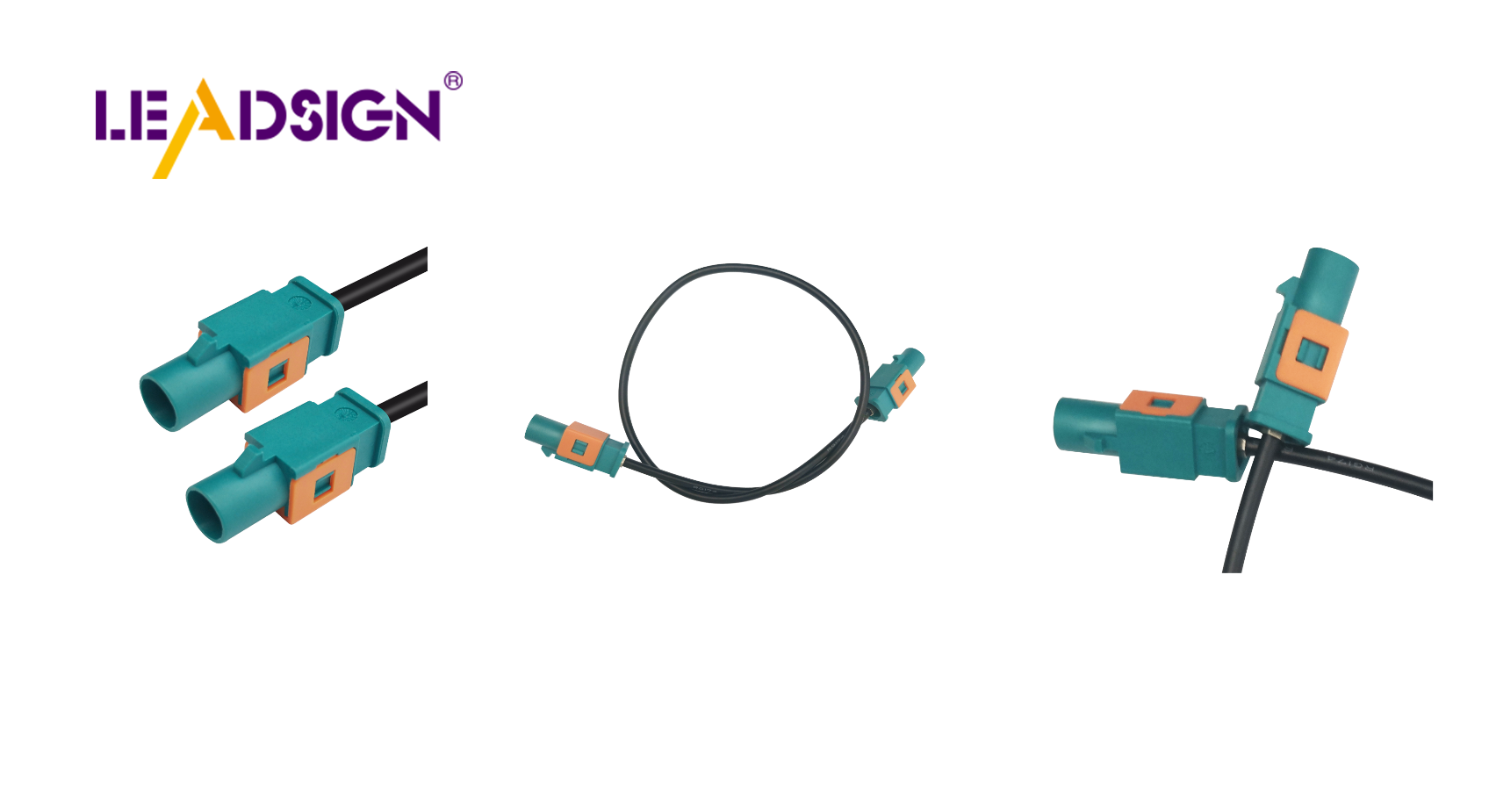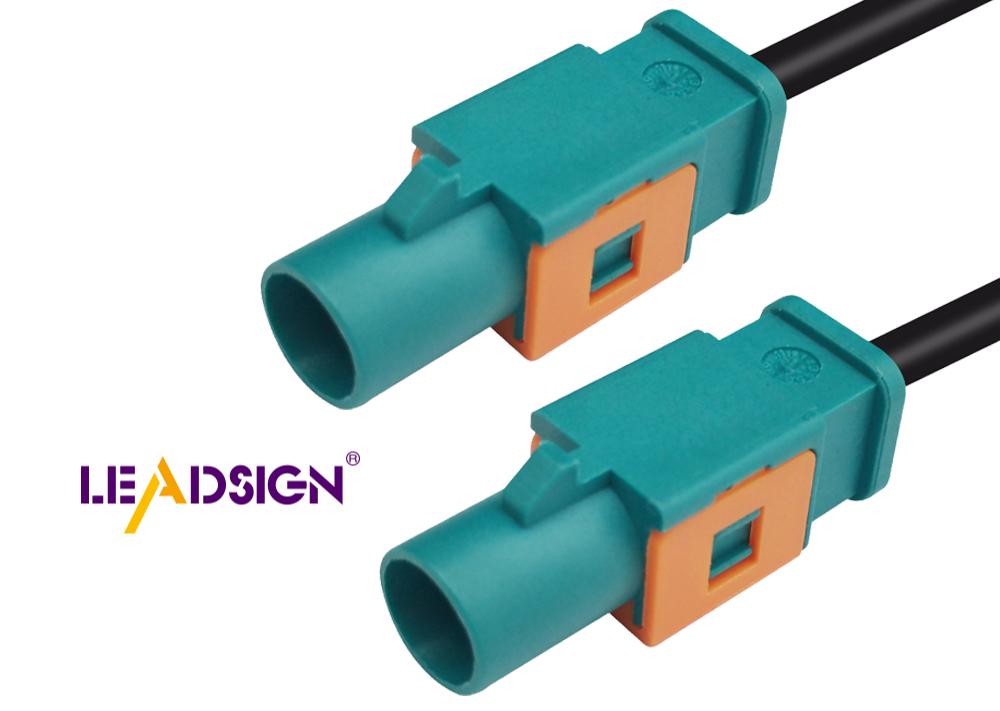Why Vehicle Connectors Matter More Than Ever

Vehicle connectors in cars are very important today. They help keep cars safe and efficient. These small parts are key to the car's electrical system. They connect wires and parts, allowing power and data to move easily. Modern cars are complex, so good vehicle connectors are more important now. Think of a car with over 240 connectors. Each one is needed for the car to work well and stay safe. As cars change, these vehicle connectors become even more essential. They are a must-have in the car world.
Key Takeaways
Vehicle connectors are essential for the safety and efficiency of modern cars, enabling smooth power and data flow between components.
Choosing the right type of connector is crucial; using the wrong one can lead to performance issues and safety risks.
Standard connectors are versatile and cost-effective, but heavy-duty connectors offer superior durability and performance in tough conditions.
As vehicles become more complex with advanced technology, the demand for reliable connectors increases, especially in electric and self-driving cars.
Investing in high-quality connectors can save money in the long run by reducing the need for replacements and repairs.
Understanding the specific needs of your vehicle helps in selecting the appropriate connectors, ensuring optimal performance and safety.
Understanding Vehicle Connectors

Definition and Purpose
What are Vehicle Connectors?
Vehicle connectors are like the glue in your car's electric system. They join parts so electricity and data can move smoothly. Without them, your car's electronics wouldn't talk to each other. It's like trying to use a phone without its charger; that's how important these connectors are for your car.
General Purpose in Vehicles
In cars, connectors do many important jobs. They make sure power gets to all needed parts, like the engine and music system. They also help data move between things like sensors and control units. This helps with everything from simple tasks to cool features like maps and music.
Types of Vehicle Connectors
Overview of Connector Types
There are different vehicle connectors, each for special jobs. USB Connectors are in many new cars, letting you charge devices and move data. High-Speed Data (HSD) Connectors help send data fast, important for car communication and self-driving tech. Robust Wire-to-Wire Connectors keep connections safe in the car's electric system, key for driver help systems and electric engines. Power Connectors link the car's main unit to power, while Automotive Low Voltage Connectors work with low voltages, powering control units and sensors.
Importance of Choosing the Right Connector
Picking the right connector for your car is very important. The right one keeps things working well and safely. For example, using a wrong connector for fast data could mess up your car's music system. Also, a weak connector might break often and be unsafe. So, knowing what your car needs and choosing the right connector is key for keeping it efficient and safe.
Standard Vehicle Connectors
Description and Uses
Common Applications in Vehicles
Standard vehicle connectors are key in your car's electric system. They link parts, making sure power and data move well. You see these connectors in many car areas, like lights, engine controls, and infotainment. They keep your car's basic and cool features working.
Lighting Systems: These connectors make sure headlights and taillights work right.
Engine Control Units: Connectors help the engine by linking sensors and controls.
Infotainment Systems: They join audio, video, and maps for fun and info while driving.
Advantages of Standard Connectors
Standard connectors have many good points that make them important in cars today:
Versatility: They fit many uses, so they work in different car models.
Cost-Effectiveness: They cost less than special connectors, cutting car-making costs.
Ease of Replacement: If one breaks, finding a new one is easy because they are common.
Limitations
Performance Constraints
Standard connectors are helpful but have limits. One big limit is their current rating. They might not handle high power well, causing heat or failure. This makes them less good for high-power needs, like electric cars or big machines.
Durability Concerns
Standard connectors may not do well in hot places. They are made from stuff that can wear out in heat. This can lower how well they work and need more fixing. In tough spots, like off-road or work sites, they might not last long.
Heavy-duty connectors are very important for big vehicles. They are made to handle tough conditions, keeping the vehicle's electric systems working well.
Built for Tough Places
Heavy-duty connectors are strong for hard places. They are used where there is shaking, heat, and wetness. These connectors are made from strong materials that resist bad conditions. This strength keeps them connected even when shaken a lot.
In big vehicles, heavy-duty connectors are a must. They link important parts like engine controls and lights. You find them in trucks and buses where they need to be reliable. These connectors make sure power and signals move smoothly, helping the vehicle work well.
Better Than Regular Connectors
Heavy-duty connectors last longer than regular ones. They are made to not wear out easily, lowering the chance of electric problems. This makes them great for big vehicles in tough places. Using these connectors means fewer fixes and better performance.
Heavy-duty connectors work better. They handle more electricity and resist bad weather. This keeps the vehicle's systems working well, even in hard conditions. With these connectors, your big vehicle will work well and keep you safe.
Choosing heavy-duty connectors for big vehicles means choosing reliability. They are key for keeping the vehicle's electric systems strong, so you can face any challenge confidently.
Key Differences
Durability
Material and Construction Differences
When you check vehicle connectors, you'll see that material and construction are important for how long they last. Heavy-duty connectors use strong stuff like metal. These materials do well in tough places. They don't wear out easily, even when things shake a lot. But standard connectors might use lighter stuff, which can break faster in hard conditions.
Longevity in Various Conditions
How long connectors last depends on their design and material. Heavy-duty ones are great in tough places. They stay strong in hot or cold weather and don't rust. This makes them perfect for vehicles in hard conditions. Standard connectors, while useful, might not last as long in such places. They work better where things aren't as tough.
Performance
Electrical Capacity
How well connectors handle electricity is important. Heavy-duty ones manage high power well. They keep power flowing smoothly, which is key for electric car systems. Standard connectors might have trouble with high power, so they're not for big power jobs.
Resistance to Environmental Factors
Being tough against the environment is also key. Heavy-duty connectors resist things like water and dust. This makes them good in rough places. Standard connectors might not protect as well. They can get damaged by the environment, which affects how they work over time.
Cost
Initial Investment
Cost matters when picking connectors. Heavy-duty ones cost more at first. Their strong build and materials make them pricey. But this cost is worth it for their strength and performance. Standard connectors are cheaper, good for easier jobs.
Long-Term Value
For long-term value, heavy-duty connectors are great. They last longer, so you don't replace them often, saving money. They work well in tough places, cutting down on fixes and downtime. Standard connectors, though cheaper at first, might cost more later because they don't last as long in hard spots.
Why Connectors Are Important in Cars Today
New Technology
Working with Smart Systems
Connectors are key in new cars. They help different parts talk to each other. This lets things like music and maps work well. As tech gets better, we need stronger connectors. They help with smart driving tools and staying connected. Without good connectors, car systems wouldn't work right.
Use in Electric and Self-Driving Cars
Electric and self-driving cars need connectors a lot. They help parts share data and power. Connectors link batteries and controls in electric cars. In self-driving cars, they help with systems that drive the car. They let data move fast, which is important for safety. As these cars become common, connectors matter more.
Cars Are More Complicated
Need for Strong Links
Cars today are more complex. We need strong links to make sure all parts work together. Connectors join different parts, letting power and data flow. This is important for keeping cars safe and working well. Without good connectors, systems might fail or work less well.
Effect on Safety and Working Well
Connectors help keep cars safe and working well. They let safety tools like airbags work right. Good connectors stop problems that could be unsafe. They also help cars use less energy and work better. As cars get more advanced, connectors are even more important for safety and working well.
Knowing about vehicle connectors is important for your car's safety and how well it works. Strong connectors last longer and work better in tough places. Regular connectors are cheaper but might not handle rough conditions well.
Picking the right connector helps your car run safely and smoothly. Think about what your car needs to choose wisely. As cars get more advanced, connectors help with new tech and keep cars reliable. Choose good connectors to make sure your car works its best and stays safe.
FAQ
What are pigtail connectors and why are they important in cars?
Pigtail connectors are very important in your car's electric system. They link parts like headlights and help send data for smart car systems. These connectors join wires to things like sensors and switches. Without them, modern cars wouldn't work right.
How do car connectors affect how well a car works?
Car connectors are key for your car's reliability. They help the electric system run smoothly by handling power, keeping out water, and fitting with cables. Terminal connectors make it easy to link wires to circuits, boosting car performance.
What do car connectors do in today's cars?
Car connectors link electronic parts in your car. They help these parts talk and work together well. You can find them in many shapes and sizes, from simple two-pin to complex multi-pin connectors.
How have wire connectors changed in car history?
Wire connectors have changed a lot over time. At first, they were simple and for specific jobs. As car electronics got better, wire connectors became more complex. Now, cars use many types of connectors for different uses.
Why do we need high-performance car connectors?
We need high-performance car connectors because of new car tech. Things like smart driving tools and electric cars need strong connectors. As tech gets better, the need for good connectors grows.
What do car connectors do for car upgrades?
Car connectors are key for car upgrades. They help with electric cars, self-driving, and better connections by letting parts talk and share power. These connectors help add new tech, making cars better.
What should you think about when picking car connectors?
When picking car connectors, think about how they handle tough conditions. They should resist dirt, water, and shaking to keep your car working well. Picking the right connectors keeps your car's electric system reliable.
What problems come from using similar connectors in big vehicles?
Using similar connectors in big vehicles can cause problems. Makers use them when parts are hard to find, but they aren't as strong as real ones. This can lead to issues, hurting the vehicle's performance and life.
See Also
Why Fakra Connectors Are Essential For Today's Vehicles
Boosting Data Transfer With High-Speed Automotive Connectors
Fakra Connectors: A Key Component In Automotive Technology
HSD Connectors: Vital Elements For Modern Automotive Systems
FAKRA Connectors: Crucial For Automotive Functionality And Performance

